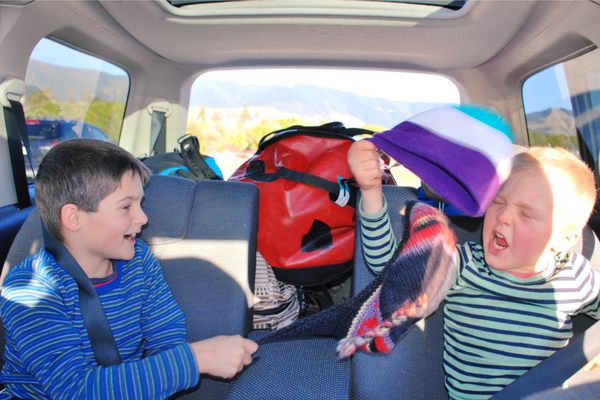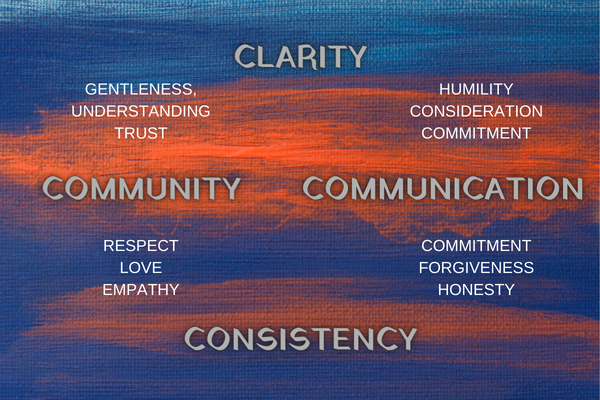
Empowering Your Children: 5 Effective Ways to Help Them Set Boundaries

As parents committed to bringing out the best in our children, one of the most valuable skills we can teach them is setting boundaries. Boundaries provide a framework for children to develop limits and confidently navigate their activities.
They empower children to say “no” when faced with situations that contradict their values or compromise their safety. When we, as parents, set boundaries for our children, we create a structure for their daily lives and provide them with essential lessons on the importance of personal boundaries.
By witnessing our own boundaries, children learn by example and gain the necessary tools to establish their own. This article will explore practical techniques to guide your children in setting boundaries from a young age, ensuring their well-being, and fostering personal growth. Let’s embark on this empowering journey together.
First, let’s explore some examples to illustrate how parents’ setting boundaries for their children can empower children to establish their own:
1. Bedtime:
Parents often set a bedtime for their children to ensure they get enough sleep for their well-being and development. By consistently enforcing a bedtime routine, parents teach their children the importance of self-care and the value of establishing boundaries around rest. As children grow older, they can internalize this lesson and begin setting their bedtime based on their needs and responsibilities.
For example, a teenager who has learned the significance of a good night’s sleep may decide to set a boundary of going to bed early on school nights to ensure they are well-rested and can perform their best academically.

2. Screen Time Limits:
In today’s digital age, parents commonly set boundaries around screen time to help their children balance technology use with other activities. Parents teach their children about moderation, time management, and the importance of engaging in various activities by establishing screen time limits.
As children mature, they can internalize the concept of setting limits on their own screen time. They may choose to allocate specific periods for entertainment while recognizing the need for quality family time, physical activities, hobbies, and social interactions.
3. Homework and Chores:
Parents often set expectations and boundaries around completing homework and participating in household chores. These rules instill discipline, responsibility, and a sense of contributing to the family unit.
Over time, children develop a greater understanding of their own capabilities and time management skills. They may establish boundaries by allocating dedicated study periods, creating to-do lists, or organizing tasks efficiently. This self-imposed structure allows them to balance their academic responsibilities, personal interests, and household commitments.
By consistently demonstrating and upholding boundaries in these areas, parents effectively communicate to their children that setting limits and taking care of oneself is essential. Children observe the positive outcomes of these boundaries in their lives and gradually internalize the value of establishing their own boundaries to promote their well-being, personal growth, and success.
Now let’s explore five powerful techniques to assist you in guiding your children towards setting boundaries that serve their well-being.

1. Lead by Example:
Children are keen observers and tend to emulate their parent’s behavior. We must practice what we preach and demonstrate the importance of setting limits in our lives. Even when we think our children may not be paying attention, they are listening and absorbing information about us. For instance, when we show respect and consideration to our spouse, our children learn the value of healthy relationships. Establishing boundaries for ourselves instills self-discipline and self-control in our children. Moreover, when they witness us consulting and communicating with each other before making decisions, they understand the significance of collaborative guidelines.
2. Cultivate Physical Boundaries:
Respecting personal space and physical autonomy is a fundamental right for everyone, regardless of age. It is crucial to teach our children that their bodies are their own and that they can set boundaries regarding physical contact. For example, if your 5-year-old expresses discomfort with a teacher’s hug, it is essential to honor their wishes. By allowing them to say “no” and refusing to pressure or judge them, we empower them to trust their instincts and assert their boundaries. Encouraging a culture of bodily autonomy fosters confidence and self-respect in our children.
3. Show Respect for Imposed Limits:
Children should understand that they have the autonomy to make decisions, even in situations involving close relatives or family friends. It is vital to communicate to our children that they can decide whether they are comfortable with physical contact, such as hugs and kisses. Respecting their boundaries teaches them the importance of consent and reinforces that personal choices should always be respected. By honoring their decisions, we validate their agency and nurture their self-esteem.
4. Establish Consequences:
When helping your children set boundaries, involve them in decision-making regarding the consequences of breaking those boundaries. This approach ensures that the consequences align with the specific offense and are age-appropriate. You provide a valuable lesson in boundary-setting and accountability by actively engaging your child in this discussion. Understanding the direct relationship between actions and consequences empowers your child to take ownership of their choices and reinforces the importance of personal boundaries.
5. Take Your Child’s Boundaries Seriously:
When your child establishes boundaries, respecting and acknowledging their choices is crucial. Actively listening to their concerns and preferences enables them to feel valued, autonomous, and capable of making decisions. Avoid dismissing their boundaries as unimportant or ridiculous, diminishing their sense of self-worth. Instead, strive to create an environment where their opinions matter and their limits are honored. For example, if your child expresses discomfort with being tickled in a particular area, respond with understanding and reassure them that their boundaries will be respected. By valuing their voice, we equip our children with the skills to prioritize tasks, make decisions, and address challenges confidently.

Setting boundaries for children is vital to fostering their personal growth and ensuring their well-being. By guiding them in establishing boundaries, we empower our children to navigate life with confidence, assertiveness, and respect for their own limits.
Remember, as parents, we play a crucial role in modeling these behaviors. When we respect and follow the boundaries we set for our children, we create a positive ripple effect, inspiring them to embrace and honor their own boundaries.
Let us continue to support our children in finding their voices, building healthy relationships, and cultivating a sense of autonomy, paving the way for happy and successful families.












